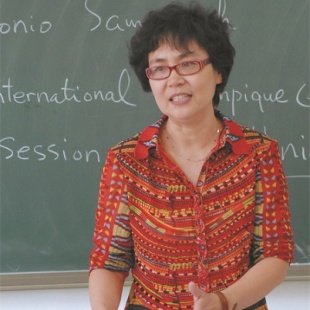As good as her word


In her writing, Ernaux consistently examines a life marked by strong disparities regarding gender, language and class. Her path to authorship was long and arduous, the Swedish Academy, the body that selects the literature laureate, said. Ernaux's work is "uncompromising and written in plain language, scraped clean", and when she reveals "the agony of the experience of class, describing shame, humiliation, jealousy or inability to see who you are", she has achieved "something admirable and enduring", the academy said in a news release.
Moreover, the professor says: "Ernaux, born in 1940, belongs to the generation that grew up after World War II and the founding of New China … also after a series of wars including the War of Resistance Against Japanese Aggression (1931-45) and the War of Liberation (1946-49), so we (readers and the writer) share certain common ground.
"When I was translating, I couldn't help crying … to a certain extent, I feel she was writing some of my own experiences," Guo says.
Sometimes she has a resonance with Ernaux, for example, "when she wrote that her aged mother was in a nursing home, I shared her agony as I also felt sorrowful when seeing my mother in sickness".
Guo's translated versions of Ernaux are not the only ones attracting attention. A teacher at her university, Chen Shuting, translated another book of Ernaux, Memoire de fille, which is expected to hit the market this month.
Guo says Tianjin Foreign Studies University boasts a strong faculty and many teachers have developed a research competence in French teaching. In particular, the translation capability of the young teachers is lauded.
Apart from translating leading French works, Guo has also conducted in-depth research on French translations of leading Chinese literary works.
Her research on the stylistics of the French version of A Dream of Red Mansions received widespread recognition in China.





































